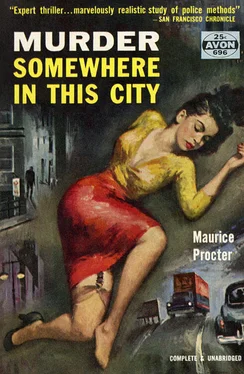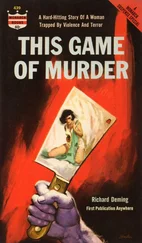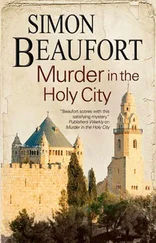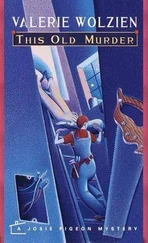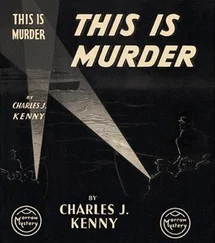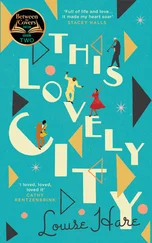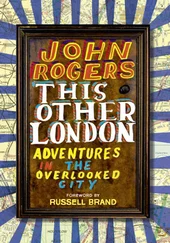Maurice Procter - Murder Somewhere in This City
Здесь есть возможность читать онлайн «Maurice Procter - Murder Somewhere in This City» весь текст электронной книги совершенно бесплатно (целиком полную версию без сокращений). В некоторых случаях можно слушать аудио, скачать через торрент в формате fb2 и присутствует краткое содержание. Год выпуска: 0101, Издательство: Avon, Жанр: Полицейский детектив, на английском языке. Описание произведения, (предисловие) а так же отзывы посетителей доступны на портале библиотеки ЛибКат.
- Название:Murder Somewhere in This City
- Автор:
- Издательство:Avon
- Жанр:
- Год:0101
- ISBN:нет данных
- Рейтинг книги:5 / 5. Голосов: 1
-
Избранное:Добавить в избранное
- Отзывы:
-
Ваша оценка:
- 100
- 1
- 2
- 3
- 4
- 5
Murder Somewhere in This City: краткое содержание, описание и аннотация
Предлагаем к чтению аннотацию, описание, краткое содержание или предисловие (зависит от того, что написал сам автор книги «Murder Somewhere in This City»). Если вы не нашли необходимую информацию о книге — напишите в комментариях, мы постараемся отыскать её.
Murder Somewhere in This City — читать онлайн бесплатно полную книгу (весь текст) целиком
Ниже представлен текст книги, разбитый по страницам. Система сохранения места последней прочитанной страницы, позволяет с удобством читать онлайн бесплатно книгу «Murder Somewhere in This City», без необходимости каждый раз заново искать на чём Вы остановились. Поставьте закладку, и сможете в любой момент перейти на страницу, на которой закончили чтение.
Интервал:
Закладка:
“Let me go, blast you!” he stormed, tugging and jerking desperately.
Martineau had another coughing fit, but it did not affect the rigidity of his arms and hands. He spat blood, turning his head slightly and carefully avoiding the man who hung below him.
“You’ve had it,” Starling panted. “I got you in the lungs. You’ll go before I do. You’ll be the Chief of Police in Hell by the time I get there.”
Martineau was silent, saving his breath. He could not even grin.
“You’re dying,” came the breathless insinuation. “You’ll have to let me go. You can’t hold on much longer.”
Martineau spat more blood.
“You’re killing yourself, man. The effort is killing you. Let me go, and save your own life.”
But Martineau did not let go.
“Oh, God damn and blast you,” the captive snarled, out of patience. “Die and rot. Die and be bloody burned. I’ll laugh at your funeral notice, you stupid bastard. You always were a smug, clever, stupid bastard. But you’ve had it, chum, you’ve had it. Don Starling’s got you, like he said he would. Remember that when your throat’s rattling, will you? I said I’d get you, and I did.”
They were in the same position when help arrived: Starling arguing, jeering, and struggling; Martineau just holding on. Two strong young constables lay down on either side of the inspector, and the three of them hauled Starling up onto the roof. As soon as he was on his feet he tried to kick Martineau, but the constables yanked him away. He fought them. He succeeded in giving one of them a swollen eye. They restrained him and overpowered him, but they did not strike him. It would have been a shame to hit him. One does not hit a man who has not long to live.
PART V
1
The condemned man did not eat a hearty breakfast. He pushed the food aside and asked for more coffee. He also demanded his daily allowance of ten cigarettes.
They offered him one cigarette and told him that this did not count as a day. Nine o’clock in the morning was his time, when the day had only just begun. At nine o’clock he would be leaving them, and according to the rules…
He said to hell with the rules. It was a day all right for him, and he was entitled to a condemned man’s ten cigarettes. He became excited and slightly hysterical.
For the sake of a quiet death they gave him the cigarettes. They knew that hysteria could be highly infectious on execution mornings, with a thousand uneasy fate-ridden men still locked in their cells. The prisoners knew why they were still locked up, and they were disturbed by a vague fellow feeling for the man who was about to die. All night they had been restless, and now one yell could create a cursing, bawling, rattling, banging pandemonium.
Starling, the condemned man, smoked incessantly as he waited for death. He had little to say, and his warders were relieved that it should be so. Better a man preoccupied and surly than one who moaned and pleaded. Let him be quiet, that was all they wanted. Let there be no uproar.
When the chaplain came Starling scarcely listened to him, but the chaplain-a young man-was insistent. He begged the prisoner to listen, to join him in prayer, to trust in God’s mercy.
Starling looked at the young man with many years to live, and laughed in his face.
“God’s mercy, yes,” he said. “Maybe, but I doubt it. There’s no evidence. The hangman is the visible hand of God and the sheriff, and I’ll get no mercy from the hangman.”
Pleased with his own words, he lit another cigarette and blew smoke at the chaplain. It was the only way to deal with this thing, he believed. Be tough, treat it as nothing, refuse to think deeply about it. Don’t think at all, in fact. It was nothing but a short walk, a few seconds of numb waiting, a brief agony perhaps, and then oblivion.
There, he was thinking about it. All through this interfering priest.
“The worst thing about this job is having to listen to a bloody parson,” he said. “Am I to be hanged or bored to death?”
The chaplain was too sorry to be offended. And Starling, a fool but not a blind fool, knew why. The chaplain did not want a man to die unrepentant, with awful sins burdening his soul. Starling could have talked to him about the crime, explaining how he had not really intended to kill that girl or any girl, and it would have been repentance of a sort. But he had already explained to a jury-or at least, his counsel had-and the explanation had not been accepted. So what was the use of talking to a parson? Besides, to die excusing himself was not Starling’s idea of stoic behavior.
He snarled at the chaplain. His voice again warned of that unwanted hysteria, and the chaplain regretfully withdrew.
Starling knew how he was going to die. Like a man. Why seek mercy where mercy was not? He would get no mercy from the hangman.
He knew how he would meet the hangman. Cool and sardonic, he would say: “I always wanted to make your acquaintance, mister, but not as a client of yours.” That would be remembered. It would get outside. People would know that he had not cringed at the final test.
2
There was a stir outside the door of the condemned cell. The hangman had arrived. Starling lit the last cigarette he would ever smoke, but in spite of his determination to be cool his hands trembled and his heart thumped. The Chief Prison Officer and a subordinate entered the cell. They were his escort to the scaffold, and they were followed by the hangman and his assistant.
Starling had imagined that the hangman would not be able to meet his glance, but his imagination had misled him. It was he who looked away first. And, somehow, he could not utter his brave remark. He could not summon the mood, the ease of manner. The hangman’s level glance would make the words seem silly. He was a burly man, clean and fresh-faced; a type who might be seen on any street in any English town. He offered Starling his hand according to custom, and his grip was casually powerful. His assistant was a younger, fresher-faced edition of himself.
Then Starling saw the strap, and his courage ebbed. A new rope for every murderer, but not a new strap. The thing of brass and leather was like a symbol. The hangman’s assistant moved behind him with the strap, and at a signal pinioned his shaking hands with one adroit jerk. The remaining length of leather was put over his shoulder, and the extra buckle dangled close to his chest.
More of Starling’s resolve deserted him. He had convinced himself that he could meet death calmly, but that was yesterday and the day before. Now was the time. Now he was going to die. And he found that he was afraid of the ordeal of dying.
He heard himself whisper: “Will it hurt?”
The hangman shook his head. “Not a bit. You’ll be all right.”
They were ready. The Walk began: a prison officer on each side of Starling, the chaplain behind, the executioners last.
They went out of the cell, and through a doorway which led to the execution shed. They passed an opening, beyond which some trees and flowers grew. Among the trees were small birds which twittered heedlessly.
Starling never heard the birds, never saw the flowers. He did not take a last look at the soft gray sky. An instinct, the most powerful of instincts, had sent its most desperate appeal to his brain. It was self-preservation, the parent of avarice, cowardice, discretion and last-resort bravery. “You must not die!” the instinct clamored. “You are not ready to die!”
The instinct totally displaced the reason which told him that it was useless to struggle or plead. But it did not entirely vanquish pride. Some vestige of self-respect kept Starling walking, in silence. He would not ask for mercy.
Читать дальшеИнтервал:
Закладка:
Похожие книги на «Murder Somewhere in This City»
Представляем Вашему вниманию похожие книги на «Murder Somewhere in This City» списком для выбора. Мы отобрали схожую по названию и смыслу литературу в надежде предоставить читателям больше вариантов отыскать новые, интересные, ещё непрочитанные произведения.
Обсуждение, отзывы о книге «Murder Somewhere in This City» и просто собственные мнения читателей. Оставьте ваши комментарии, напишите, что Вы думаете о произведении, его смысле или главных героях. Укажите что конкретно понравилось, а что нет, и почему Вы так считаете.
